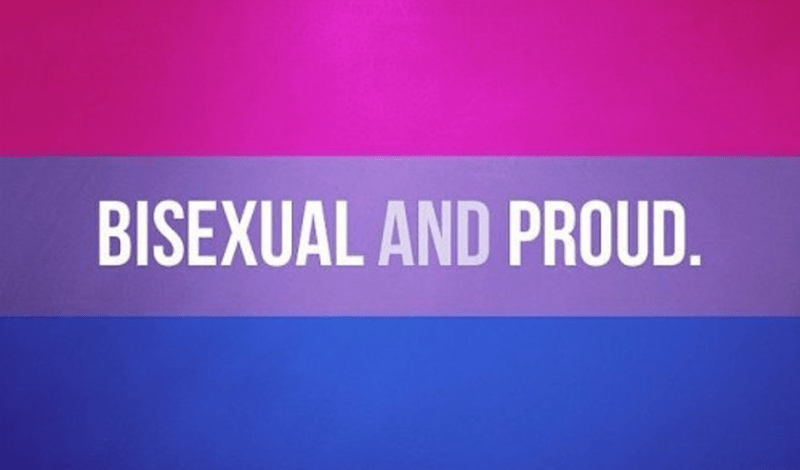No more than any other sexual orientation if we’re honest, says Katy Harrad
According to YouGov, over a quarter of the UK population believe everyone is homosexual or heterosexual with no middle ground. In other words, over a quarter of the population thinks bisexuals are imaginary – uncertain ghosts, forever caught in a kind of no-man's-land in the space between straight and gay. What a terrifying thought. It's particularly scary since the same YouGov poll established that 19% of people in the UK would define themselves as occupying that middle ground. That's a lot of ghosts.
So, since it's actually quite common, why are people confused by the idea of bisexuality? It shouldn't be a difficult concept for anyone who's able to grasp the idea that people can like more than one type of thing. Do you know someone who enjoys science fiction and rom-coms? Or who loves chocolate and also sprouts? That's exactly how complicated bisexuality is.
Yet bisexual people often find themselves up against some odd assumptions. Pick a side. Stop sitting on the fence. Make your mind up. Batting for both teams. There's a sense that you're untrustworthy, like a double agent, or like a football fan who's cheering for both sides. No wonder people are often nervous about dating us – as soon as you take your eyes off us, we're off flirting with someone else. We can't commit because we always want to keep our options open. We'll never be happy unless we're sleeping around, so of course we can't be trusted.
But these are all personality traits, not side-effects of having a sexual orientation. Are all lesbians short-haired butches with power tools? Are all gay men addicted to having sex in public toilets? Being wired to find more than one gender attractive just means that you find more than one gender attractive. Who you like doesn't determine what you're like.
It's wonderful that the cultural narrative around sexuality has expanded to allow gay and lesbian people in. But it's still a limited narrative. It usually goes something like: "Mary always felt different, she tried to fancy boys but realised it was girls she really liked, and now she's a lesbian". That may be true of many people, but the range of stories around sexuality are much, much wider than the ones that get told. How about "Kendra used to fancy boys and girls but she has a girlfriend now, so she's decided to identify as a lesbian"? Or "All Sanjit's friends are on the gay scene, so it's easier if he doesn't mention his ex-girlfriend"? Or "Alex has a partner who doesn't identify as male or female, and she's rethinking how to define her sexuality"?
So yes, bisexuality is confusing and complicated. So is heterosexuality. So is homosexuality. If you drill down far enough, everyone's sexuality starts looking like a unique and elaborate snowflake. He fancies women except for that one time, she fancies women except for her husband, zie has never fancied anyone except their current partner, he doesn't mind what gender his partners are so long as they like bondage, they only fall in love with women but only have sex with men. You could go on forever.
Does that mean it would be easier if everyone were just straight or gay? Sure, but they aren't, so there's not much point pretending. Is it, ultimately, better and more interesting to just accept that sexuality is a multifaceted spectrum and allow people to find their own space within that spectrum? Definitely yes. Don't be confused – be enthused.
Kate Harrad is the editor of Purple Prose: Bisexuality In Britain
Only reading DIVA online? You're missing out. For more news, reviews and commentary, check out the latest issue. It's pretty badass, if we do say so ourselves.
divadigital.co.uk // divadirect.co.uk
